on
Poultry can be raised for meat or eggs and can be raised in all areas of the country even in the most urban environments. The most common poultry being raised for meat or eggs are ducks, chickens and quail. So lets take a general look at the pros and cons of each of these to see which might best suit your location.
Reasons to raise quail
Quail require less space and less work than chickens and rabbits plus they are quiet and easy to raise. They do not eat a lot, convert feed into protein efficiently, and are much more congenial creatures than even the sweetest-tempered chicken. Many cities allow quail when chickens are forbidden and given their quiet nature and modest space requirements, they can even be raised on the balcony of an urban apartment.
An average quail weighs approximately 5 ounces. Yeah, that’s pretty tiny, and while there may not be much meat on their bones, the meat that exists is mighty tasty and kind of fun to serve up. Their small size means they don’t need as much space as some of the larger barnyard poultry, which means city-dwellers can easily keep a couple of quail in a small space.
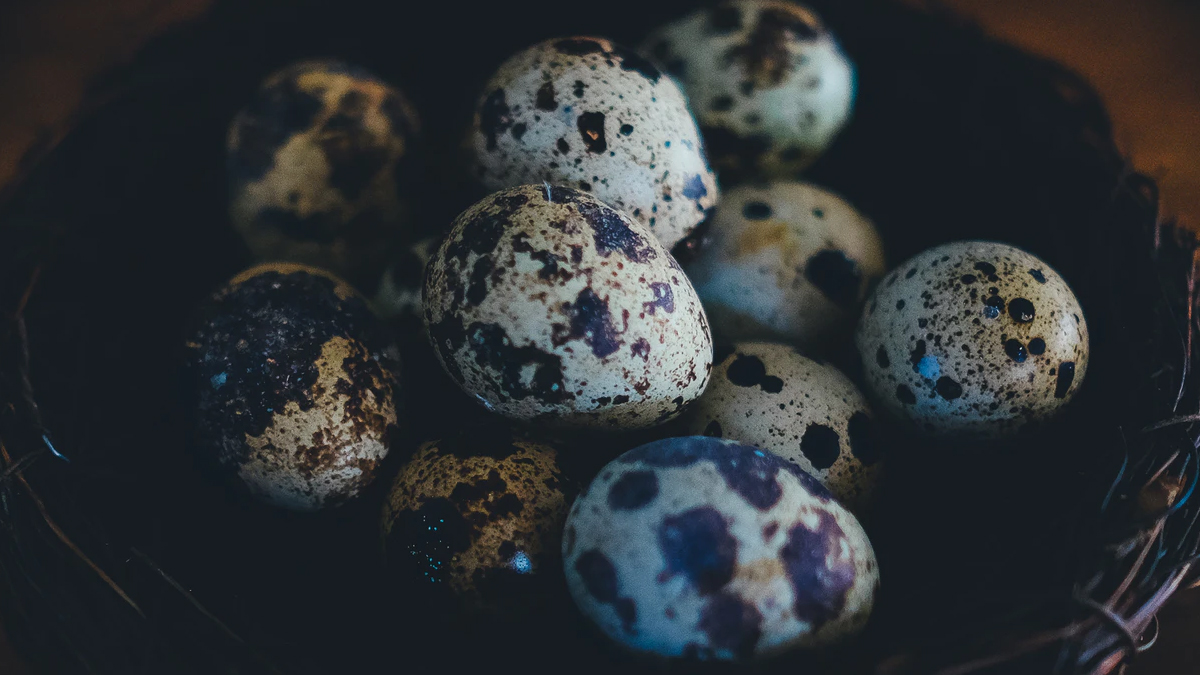
If you are strapped for space or just considering “stealth” options for protein, it might interest you to know that there are people who opt to keep their quail indoors. They tend to think of their little egg layers as any other caged bird or pet. There isn’t anything wrong with this method of quail-keeping, as long as biosecurity measures are in place—in other words, the cage should be cleaned almost daily for sanitary, and sense of smell, reasons. If you are interested in raising quail for meat be sure to check out this handy guide here.
And speaking of eggs, they are tiny, it takes about 5 quail eggs to equal a large chicken egg. And while chickens don’t typically start laying until they are about 16-18 weeks old, quail will start laying eggs at 6-8 weeks.
Reasons to raise ducks
Duck eggs are large and rich-tasting and delicious scrambled, hard-cooked or fried, but where they excel is in baked goods. Their high-fat content ensures that cupcakes and souffles will rise higher and that cookies and other pastries will taste richer.
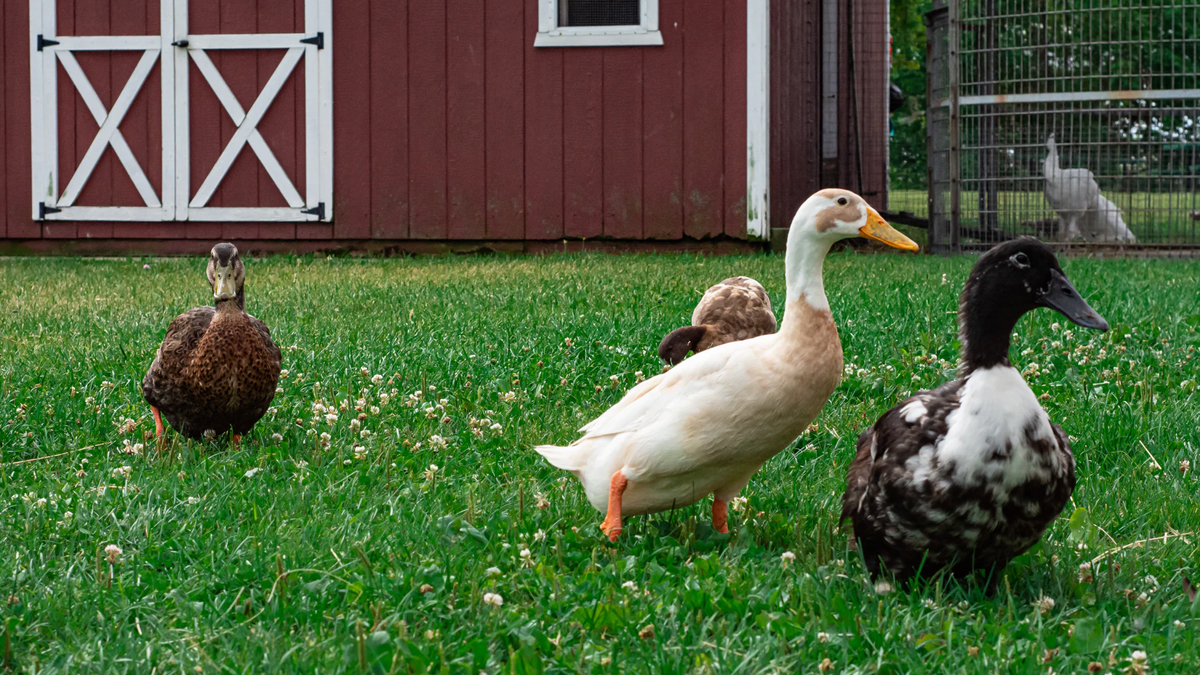
Unlike chickens that tend to stop or greatly slow production in winter, ducks generally lay well year-round without any additional heat or light during the cold winter months.
Since they don’t do a hard fall molt like chickens, ducks instead molt several times throughout the year, which usually doesn’t affect egg production for long.
Ducks are not only extremely cold-hardy, and they are also heat-tolerant, so well suited for pretty much any climate.
They don’t have combs or wattles to get frostbitten, and they have a complex circulation system in their legs and feet that help keep their lower extremities from suffering ill effects from the cold.
Ducks are murder on fly and mosquito larvae as well as grubs, slugs and all kinds of garden pests, keeping your yard relatively bug-free. And while they will pull up young seedlings, once your garden plants are well established you can send your ducks in for slug patrol without having to worry about them tearing up your garden.
Male ducks are typically quieter than females, so you can get away with having a drake or two in your backyard for reproduction without getting complaints from your neighbors about being woken up at 4 a.m.
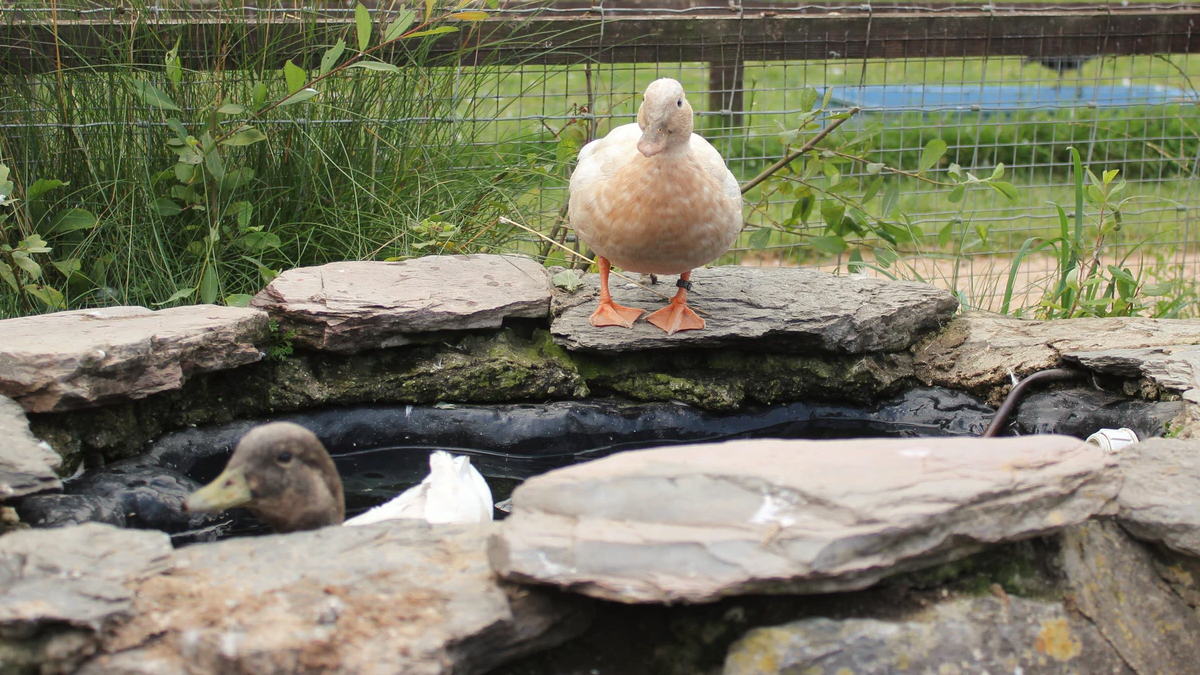
While they do enjoy a pond, having one is not necessary as long as they have a “dipper”. A dipper can be a tub of water surrounded by fencing that will let them dip their heads under the water, without letting them get in to swim. This cuts down on the mess and maintenance of maintaining a pond or pool for them.
Duck meat has a much stronger flavor than both chicken and turkey. The nearest comparison would be the darker parts of other poultry, but duck is still more flavorful. As is the case with many foods, the higher fat content positively contributes to the overall taste profile. If you are interested in raising ducks for meat, check out this handy guide.
Reasons to raise chickens
When most people think of eating eggs, the first thing that comes to mind is chicken eggs. And eggs are the reasons that most people cite for obtaining chickens in the first place.
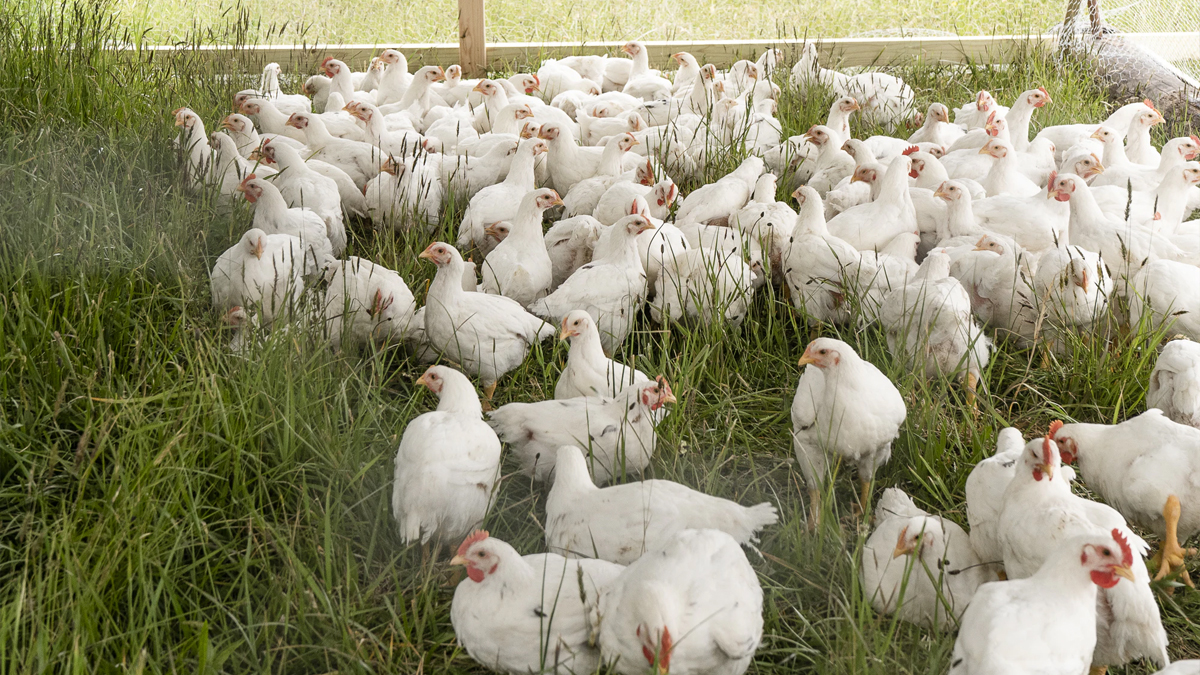
Many cities now allow for a small backyard flock of hens but no roosters. There may be additional ordinances around the style of housing you keep your chickens in, and if you are allowed to free-range them in your yard.
With a good coop & run set-up that provides good predator protection and proper shelter, you can take most of the work out of caring for your chickens other than making sure they have water and food and even that can be automated to a certain extent which makes it easier to take a vacation and just have a neighbor collect eggs once a day.
If you are interested in butchering your own chickens check local ordnances if you live in the city as some do not permit butchering even for yourself. So you might have to take them to a processor – if you can find one in your area.
Some chicken breeds are considered “dual-purpose” and are supposed to be for both meat and egg production. If you live in the country, these work well as you can butcher your extra roosters, or hens that are past laying age. If you are interested in raising strictly meat birds check out this information from The Spruce website.
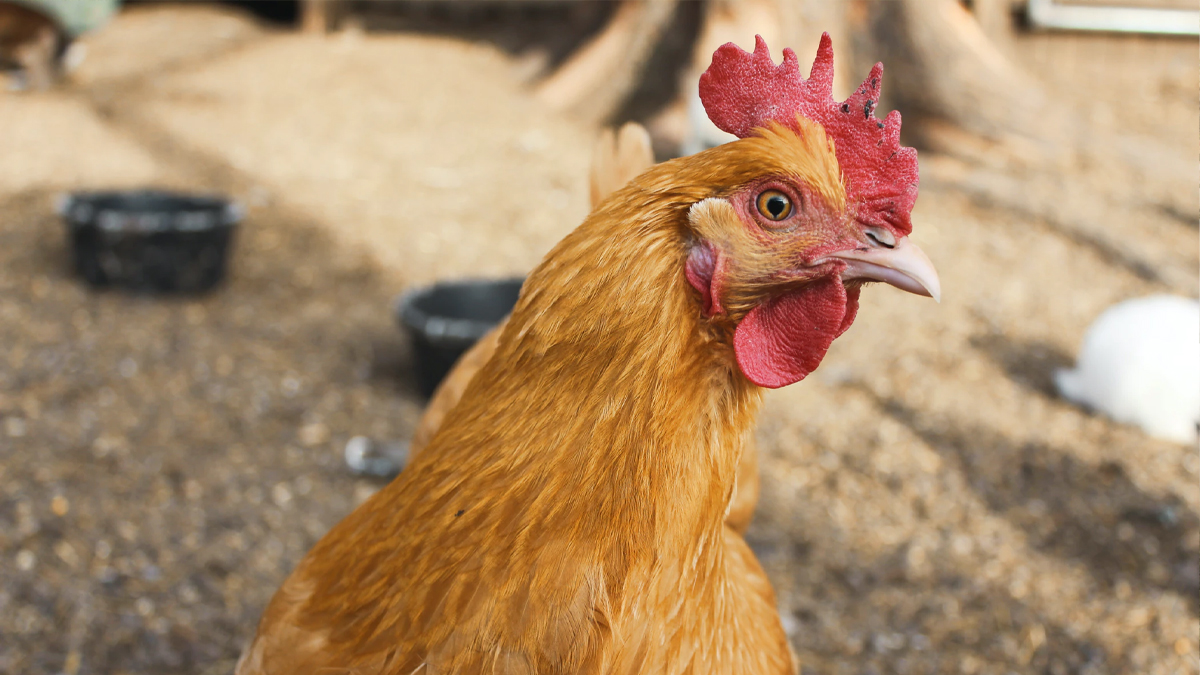
If you are in a rural area and able to keep a rooster, be prepared to dispose of any mean ones – life is too short to put up with the danger of a mean roo. However, keeping a rooster with your hens not only means that you can replicate your flock, a good rooster will protect his hens to his dying breath. He will also keep watch, and warn of hawks and eagles – in fact if you listen closely it will almost sound like he is yelling “hawk, hawk” when any large bird flies over. Our Nigerian Dwarf goats recognize that warning call and they will call to their kids to huddle up with mom or to hide under a tree.
If you have a large number of hens, you can keep multiple roosters without fighting, they just need to have at least 6 or more hens each so there is no fighting over the ladies. And it helps if they were introduced to each other when both are young, and if the flock spends most of their day free-ranging that way they are able to stay out of each other’s way.
Get access to premium content and more!





